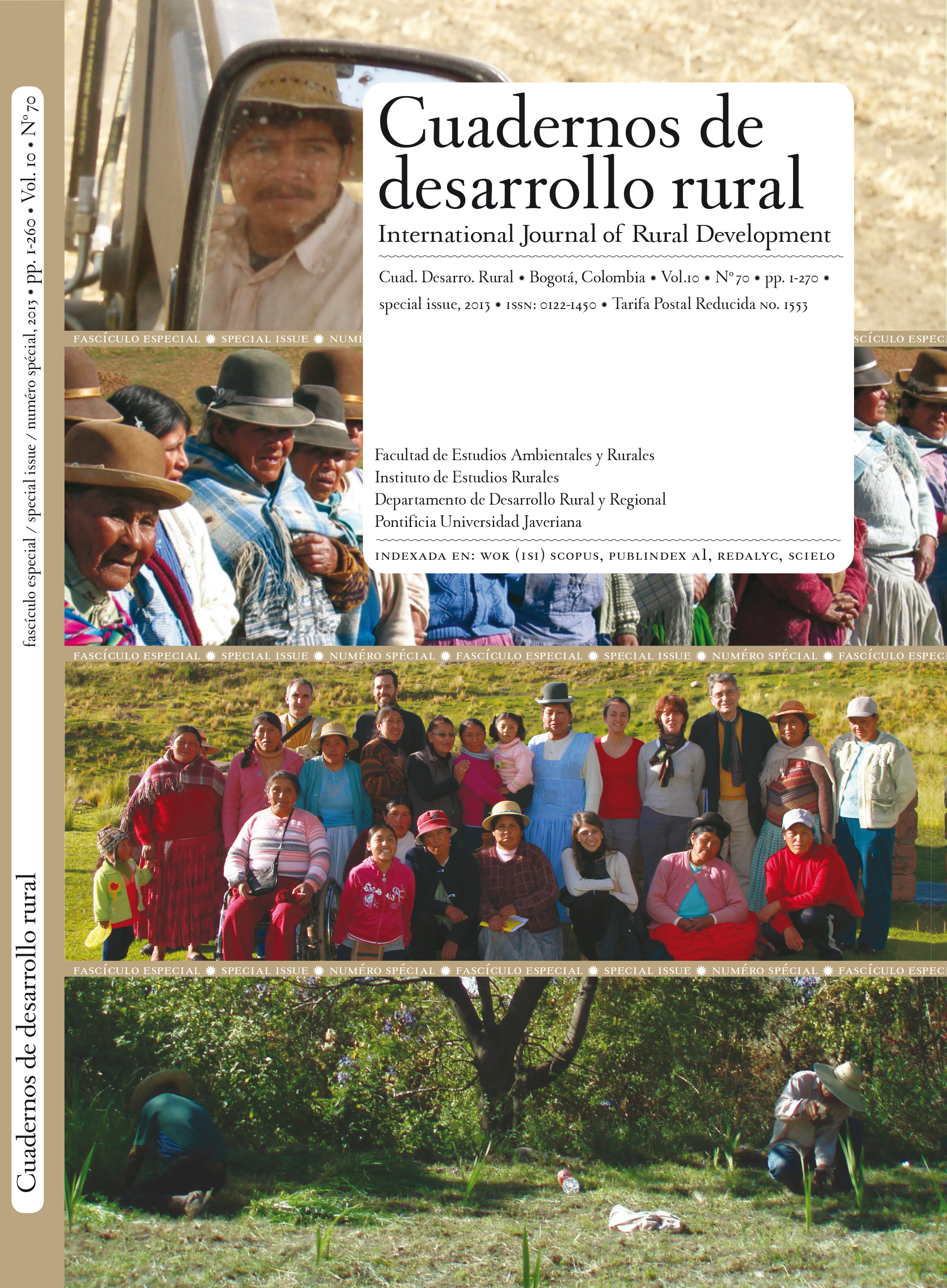Abstract
Development cooperation projects work with people involved in processes of change and social transformation. While the main objective of the intervention is the development process itself, the project’s quality will be determined by the way of implementing it. Its success lies in the sustainability of the generated processes and the connection with them by the involved actors. The evaluation analyses both aspects. This article examines the evaluation, under a process approach, of a project on urban agriculture in Lima (Peru). The results show that the use of this approach, which combines different evaluation tools, allows the identification and analysis of the processes with the involved members, providinga better understanding of the real sustainability of the results.Cuadernos de Desarrollo Ruralis registered under a Creative Commons Attribution 4.0 International Public License. Thus, this work may be reproduced, distributed, and publicly shared in digital format, as long as the names of the authors and Pontificia Universidad Javeriana are acknowledged. Others are allowed to quote, adapt, transform, auto-archive, republish, and create based on this material, for any purpose (even commercial ones), provided the authorship is duly acknowledged, a link to the original work is provided, and it is specified if changes have been made. Pontificia Universidad Javeriana does not hold the rights of published works and the authors are solely responsible for the contents of their works; they keep the moral, intellectual, privacy, and publicity rights.
Approving the intervention of the work (review, copy-editing, translation, layout) and the following outreach, are granted through an use license and not through an assignment of rights. This means the journal and Pontificia Universidad Javeriana cannot be held responsible for any ethical malpractice by the authors. As a consequence of the protection granted by the use license, the journal is not required to publish recantations or modify information already published, unless the errata stems from the editorial management process. Publishing contents in this journal does not generate royalties for contributors.


